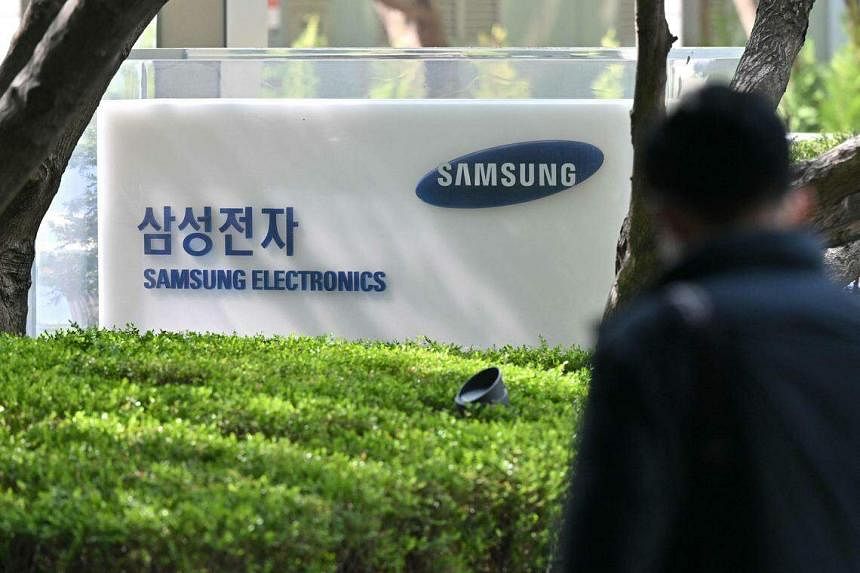Samsung looks to late 2023 recovery after $4.5 billion chip loss

Image credit: PHOTO: AFP
SEOUL – Samsung Electronics posted a record US$3.4 billion (S$4.5 billion) loss at its pivotal memory chip division, but said it expects the global tech industry to begin emerging from its downturn later in 2023.
It joined SK Hynix in predicting some relief from a broad tech recession that has hit the world’s biggest names from Apple to Intel. Asia’s largest electronics company said on Thursday that it expects demand to only gradually improve in a range of markets from smartphones to PCs and storage, driven by a Chinese economic recovery and accelerating development in artificial intelligence (AI).
Samsung has been at the heart of a slump gripping the US$160 billion global memory industry, a proxy for a wider downturn that set in after a Covid-19-era boom in Internet activity and device sales. Inflation and recession fears in 2022 triggered a rapid pullback in consumer and business spending that has since hammered sales of electronics worldwide.
The company, which supplies chips to Apple while making the iPhone’s closest competitor, reported net income of 1.4 trillion won (S$1.4 billion), lagging the average analyst estimate of 1.45 trillion won. Its semiconductor division, typically its largest, posted an unprecedented loss of 4.58 trillion won.
The memory chip industry has “likely passed the worst of weak demand” in the first quarter, said Mr Eli Lee, head of investment strategy at Bank of Singapore. “Higher-end memory sales will continue to support pockets of demand, especially in the second half of 2023, due to new smartphone launches and AI demand expansion.”
Samsung plans to maintain investment in memory chips for 2023 at about last year’s level because it is seeking to safeguard its longer-term competitiveness. This is despite promising a “meaningful” cut in semiconductor production, a reduction aimed at stabilising collapsing chip prices. Samsung has historically aimed to spend throughout recessions to protect its lead.
The unusual move, twinned with more upbeat predictions about PC and phone demand, has spurred hopes that the industry will climb out of its trough in 2023. Spot memory prices rebounded for the first time in 13 months shortly after Samsung’s announcement. . .
In the longer term, investors remain transfixed with how a US-China conflict might affect the industry. Beijing launched a review of chips from Micron in March, inciting concerns about a backlash towards American companies and possibly US allies. China is among South Korea’s largest export destinations, and a key market as well as a production base for Samsung and SK Hynix.
South Korean President Yoon Suk-Yeol is touring the US capital this week and discussions are likely to centre on the country’s role in US curbs on exports to China, part of Washington’s effort to contain its political rival. A blockade on shipments of chipmaking equipment threatens to curtail Samsung’s memory operations in China.
Executives said on Thursday they are negotiating with Washington about guard rails in the Chips and Science Act that constrain companies that take federal funds from certain expansions in China."
BLOOMBERG
RELATED

No comments:
Post a Comment